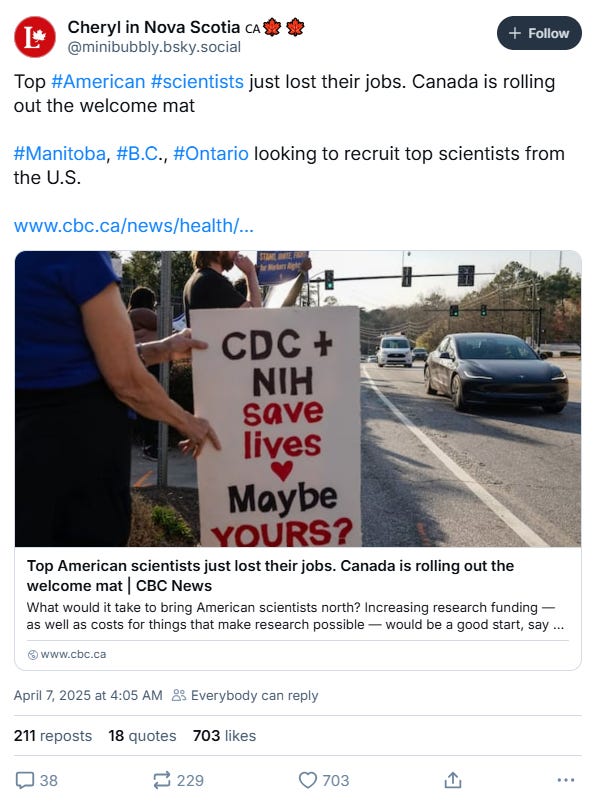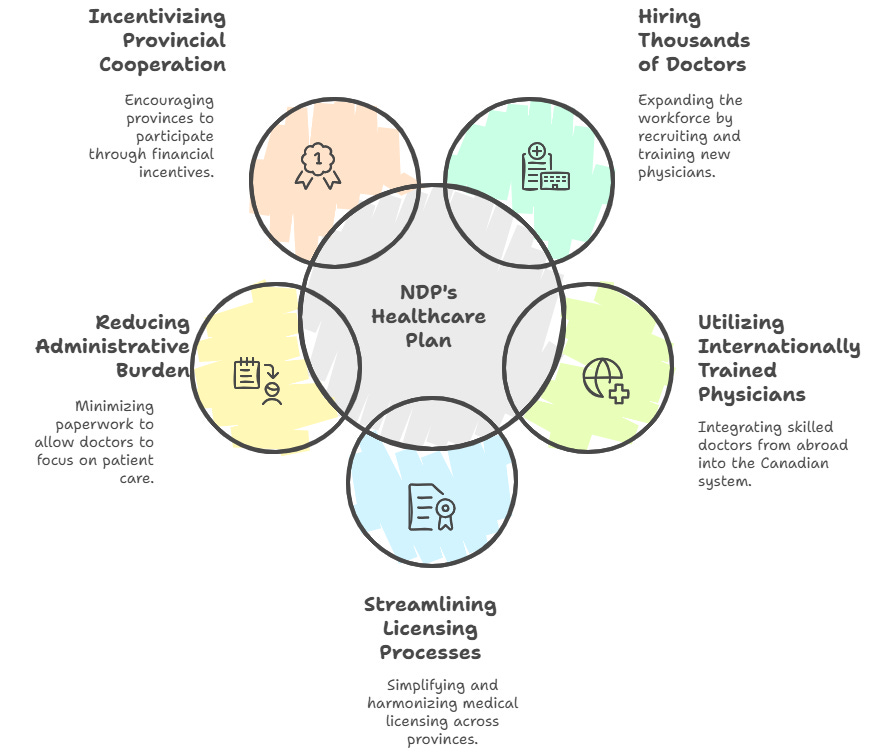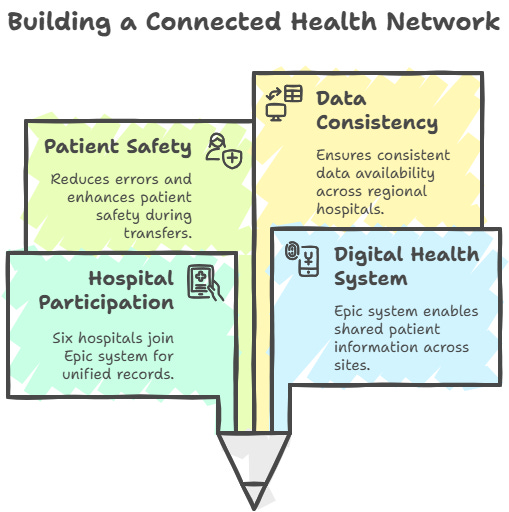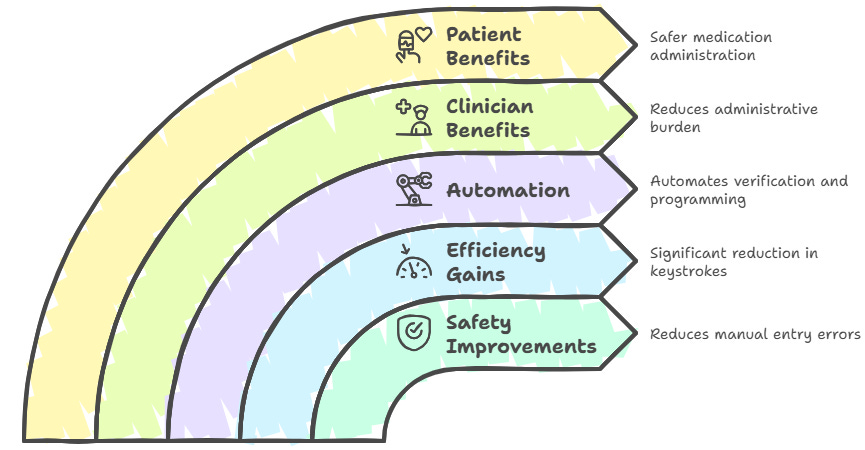🍁 Care & Election Promises
Your Weekly Dose of Health Insights – Because Your Health Isn’t Just a Headline
Good morning, Other Siders!
Welcome back, seasoned navigators of the Canadian healthcare maze! And a huge, warm hello to all the new faces joining the "Other Side of the Care" crew this week – glad to have you aboard!
Get ready for a whirlwind tour, because healthcare news has been buzzing louder than a hornet in an MRI machine lately. We've got election promises flying thick and fast, tech making some seriously cool moves right here in Canada, and global health keeping us on our toes. We're here to cut through the noise and, as always, bring you those real-world case studies – like this week's deep dive into smarter IV meds – showing practical solutions you can actually learn from right now.
Making sense of this changing landscape and turning insights into action is what we live for. Whether it's charting a course for digital transformation, untangling operational knots, or leading change that actually sticks, our team has a proven track record helping Canadian healthcare organizations navigate complexity and achieve real impact. We at The Other Side of Care are committed to driving meaningful change, one challenge at a time. Let's get into it!
In today’s edition, we’re serving up:
Pulse Check Canada:
NDP's Big Doc Plan
US Docs Eyeing North?
Digital Diagnosis:
Ontario EMR Link-Up
Global Beat:
WHO's Pandemic Drill
Deep Dive:
Case Study on Smarter IV Meds!
Dive in and enjoy the ride. 🚀
News that Impacts You!
NDP's Big Doc Plan 🩺
The NDP is swinging for the fences, promising every Canadian access to a family doctor by 2030. Leader Jagmeet Singh laid out a plan involving hiring thousands of docs, finally using internationally trained physicians already here (hello, 1,000 new residency spots!), making it easier for some US docs to come north, pushing for pan-Canadian licenses, cutting admin work, and dangling a 1% health transfer bonus for provinces that play ball. It's a bold promise aiming straight at the 6.5 million Canadians currently doctor-less! But, hitting that 2030 target? That needs provinces on board, finding thousands of docs (when retaining current ones is tough!), and untangling licensing red tape. Big goals, big 'ifs'. Imagine your neighbour, an experienced doctor trained overseas, finally getting a residency spot instead of driving a cab, potentially easing the waitlist at your local clinic. Ambitious plan or election pipe dream?
What do you think needs to happen first to fix the doctor shortage?
US Docs Looking North? 🍁
Feeling flattered, Canada? Apparently, there's been an uptick in American doctors checking out opportunities north of the border, a trend noted since Trump's election. Could be a potential boost for our short-staffed system, right? Especially with the NDP suggesting easier entry for some. But... hold on. Are we fixing our own leaky bucket – like keeping the doctors we have from burning out and properly integrating the thousands of internationally trained docs already living here who can't get residencies? Or are we just hoping for reinforcements from next door because it seems easier? Food for thought. Maybe your specialist trained in the US but decided to practice here – potentially bringing valuable skills, but also highlighting the need for smooth integration for all.
Should Canada actively recruit US doctors, or focus 100% on fixing domestic training and retention first? What's the priority?
Ontario Hospitals Connect Records 🔗
More dots connecting in Eastern Ontario! Six more hospitals are jumping onto the Atlas Alliance's Epic digital health records system, bringing the total to 16 partner sites sharing patient info. This is a solid step towards that "one patient, one chart" dream, making life easier (and safer!) for patients moving between, say, Pembroke and Ottawa. Having records actually there waiting means less repetition and fewer chances for errors. But let's be real, the fact that this regional alliance is news highlights how fragmented things still are nationally.
When will everyone be on the same digital page across the country? What's the biggest barrier to truly connected healthcare records across Canada? Tech, cost, privacy, politics?
WHO's Global Fire Drill 🔥
Remember the early COVID chaos? Yeah, not fun. The World Health Organization is trying to avoid a repeat with "Exercise Polaris," its first big global pandemic practice drill. Over 15 countries, including Canada, plus loads of agencies, ran through a simulated outbreak scenario using the new Global Health Emergency Corps framework. The goal? Test how everyone communicates, coordinates, and deploys help before the next real crisis hits. Think of it like firefighters training – testing communication and coordination so when a real emergency happens, the response is faster and more effective. Practice makes perfect... or at least less panicked? How confident are you in global (and Canada's) readiness for the next pandemic, Other Siders? What's the biggest lesson we still need to learn?
How confident are you in global (and Canada's) readiness for the next pandemic? What's the biggest lesson we still need to learn?
💭Let us know what you think in the comment section.
🕵️♀️Case in Point
Making IV Meds Safer & Smarter at Mackenzie Health
Background & Problem: Picture this: a busy hospital ward. Nurses are juggling multiple patients, and many need medications delivered intravenously (IV). At Mackenzie Health's hospitals in Vaughan and Richmond Hill, Ontario, like many places, programming those IV pumps used to be entirely manual. Sounds simple, but it's fraught with risk. Punching in the wrong dose, the wrong rate, selecting the wrong medication from the pump library, or even accidentally programming the pump for the wrong patient – these weren't just theoretical risks, they were real possibilities with potentially serious consequences. On top of the safety concerns, it was inefficient. Manually programming pumps takes time – precious minutes nurses could be spending on direct patient assessment and care. Add manual documentation of infusion details into the Electronic Medical Record (EMR), and you've got a recipe for potential errors and workflow bottlenecks.
The Solution: Mackenzie Health decided to tackle this head-on, becoming the first health system in Canada to implement a specific kind of smart pump technology: the BD Alaris™ EMR Interoperability system, connected to their Epic EMR. Think of it as making the IV pump and the patient's chart talk to each other directly. Here’s how it works: a nurse scans the patient's wristband, the medication barcode, and the IV pump. This triple-check electronically links the specific medication order in the EMR to that specific patient and pump. The system automatically pulls key order details (like drug name and dosage) from the EMR to the pump, pre-populating fields and adding crucial safety guardrails. Crucially, the communication goes both ways. Information like infusion status, alerts, and rates automatically flows back from the pump into the patient’s EMR in real-time. No more manual transcription!
The Outcome: Significant improvements in both safety and efficiency. By automating the verification and programming steps, the system dramatically reduces the chance of those dangerous manual entry errors.
How We Can Help: Inspired by Mackenzie Health's success? Tackling similar workflow challenges or aiming for seamless digital integration in your organization? The Other Side of the Care specializes in exactly this – helping Canadian healthcare providers develop and implement tailored digital health strategies and operational transformations. We understand the complexities of change leadership in healthcare and have a proven track record of helping organizations bridge the gap between technology potential and real-world impact. Let us help you strategize, develop, and implement solutions like these, customized for your unique environment.
📈What’s Trending🔥

Referral
The Friendly Side of Care: Bring a Pal!
Share this link with another healthcare nerd, practitioner, or someone you feel will benefit from this information
Why? Because when you do (and they sign up), you'll earn points toward some fantastic rewards. Things like points towards a free subscription to The Other Side of Care paid content and upcoming merchandise!
Sound Off! Your Thoughts Here 📢
Alright Other Siders, that’s the wrap for this week! What caught your eye? Did any of these stories hit close to home? Agree, disagree, or have a burning question? Hit reply or use our (imaginary but soon-to-be-real?) feedback link to let us know what you think, suggest future topics, or just say hi! We read everything (yes, really!).







